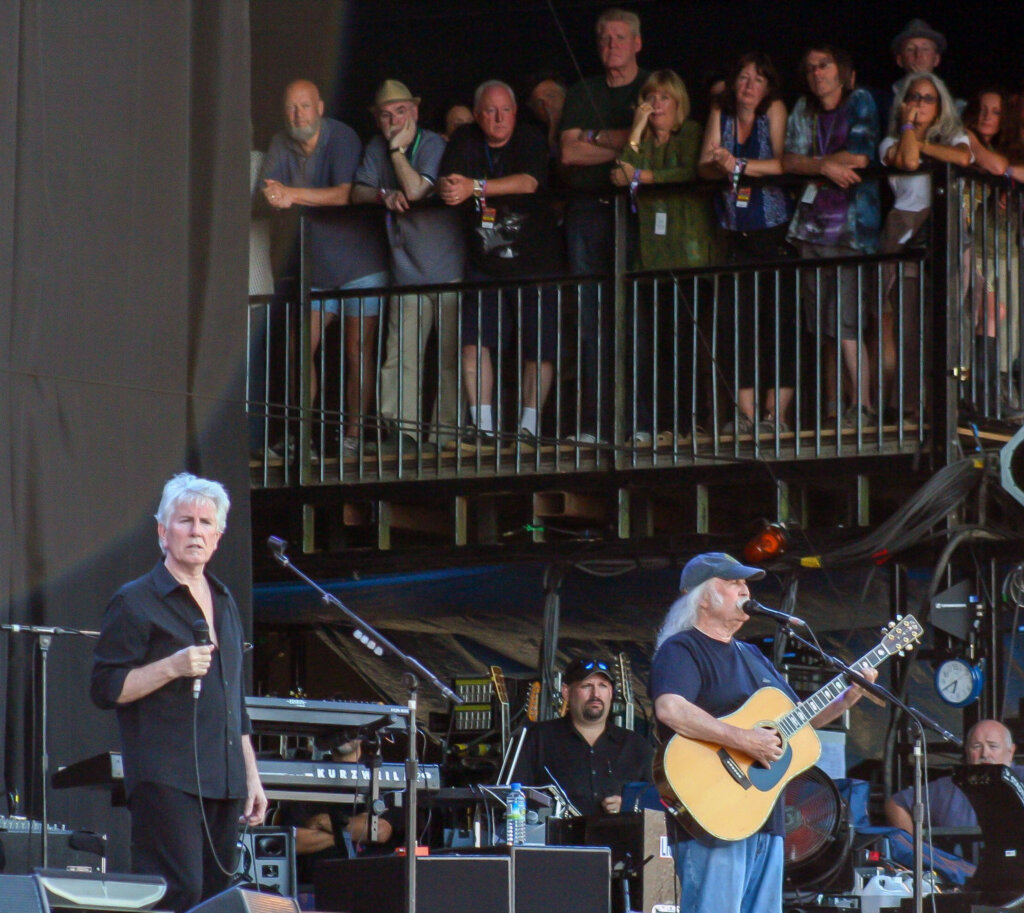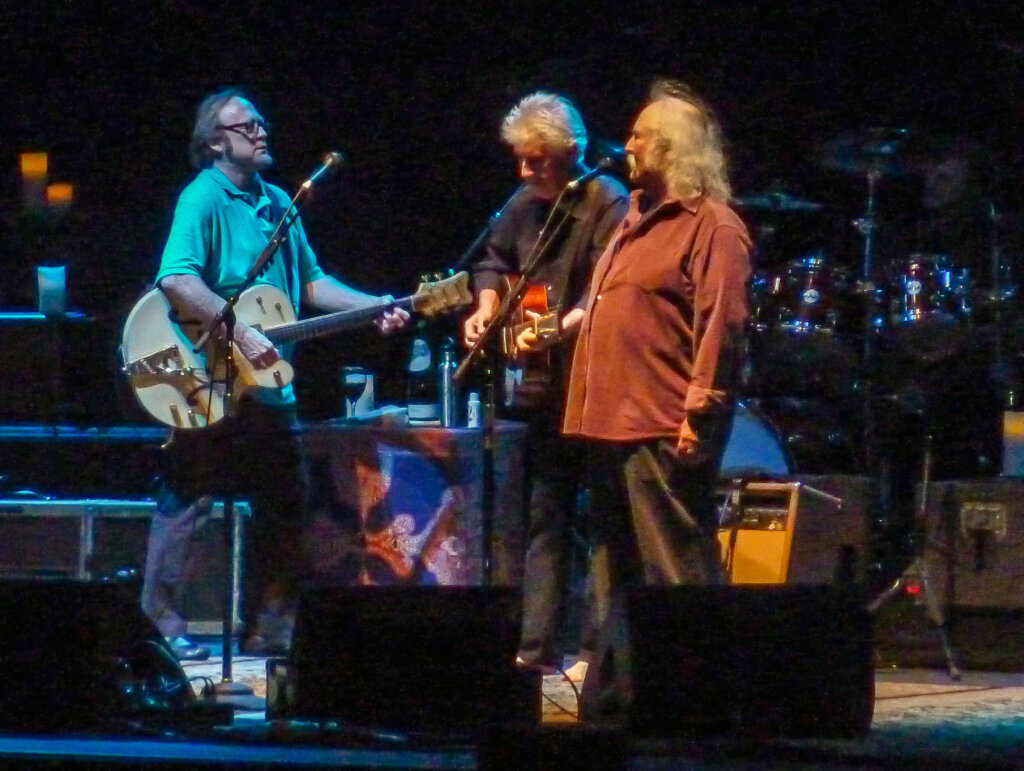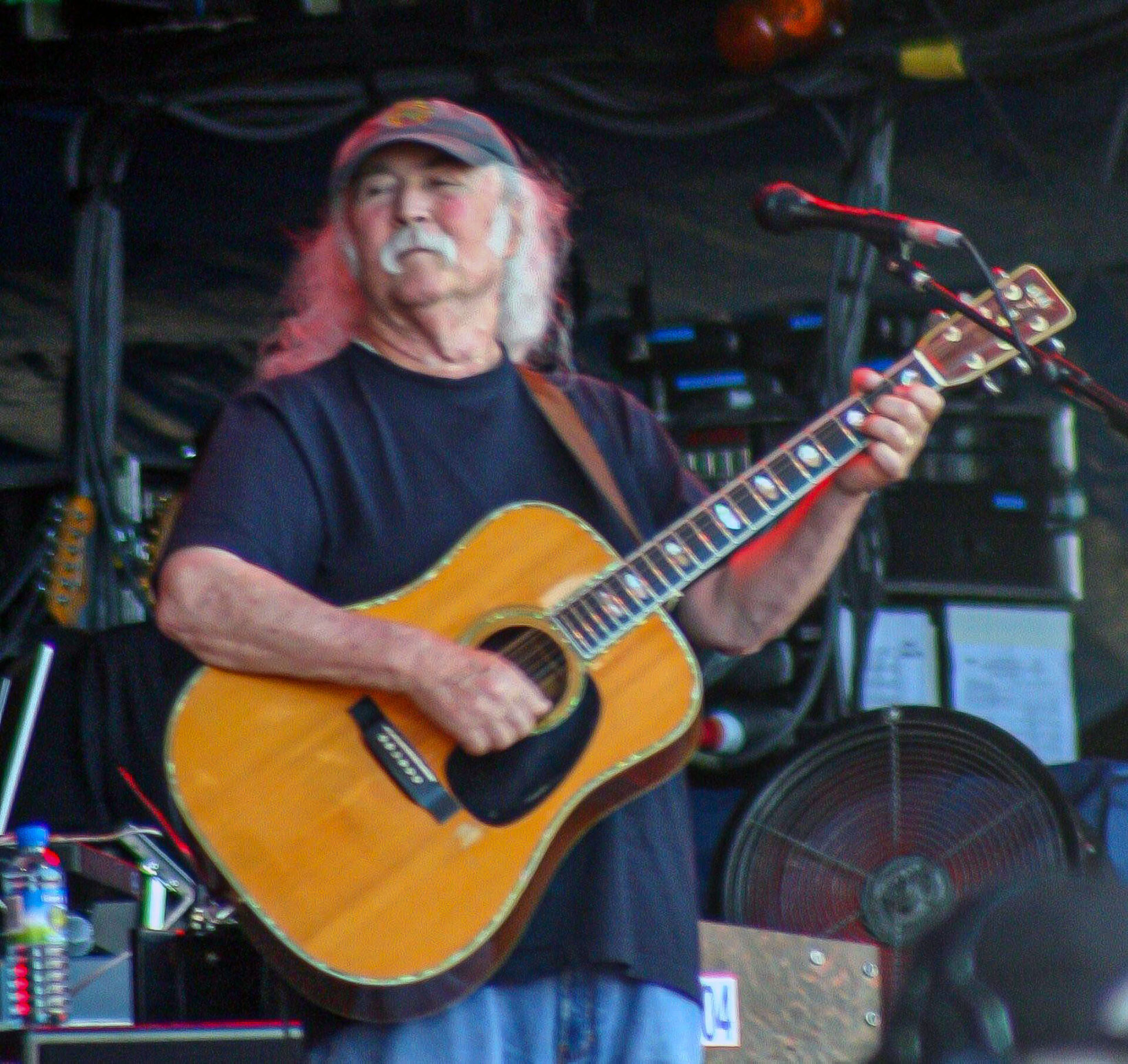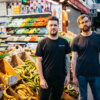The legendary American musician David Crosby has died at the age of 81. His wife, Jan Dance confirmed the news in a statement to Variety magazine:
“It is with great sadness after a long illness, that our beloved David (Croz) Crosby has passed away. He was lovingly surrounded by his wife and soulmate Jan and son Django. Although he is no longer here with us, his humanity and kind soul will continue to guide and inspire us. His legacy will continue to live on through his legendary music. Peace, love, and harmony to all who knew David and those he touched. We will miss him dearly. At this time, we respectfully and kindly ask for privacy as we grieve and try to deal with our profound loss. Thank you for the love and prayers.”
Alongside Roger McGuinn, Gene Clark, Chris Hillman, and Michael Clarke, David Crosby was a founding member of The Byrds, the hugely influential American folk, psychedelic, and country rock band that formed in Los Angeles in 1964. Crosby remained with The Byrds for their first five albums, a period during which they recorded their two number 1 hit singles, ‘Mr. Tambourine Man’ and ‘Turn! Turn! Turn!’
Along with Stephen Stills and Graham Nash, who had arrived from Buffalo Springfield and The Hollies respectively, David Crosby subsequently formed Crosby, Stills & Nash. Neil Young then joined Crosby, Stills & Nash, initially for live appearances, the second of which was at the Woodstock Festival in 1969. ‘Guinevere’, as featured on the original Woodstock Two vinyl album, is a perfect example of the supreme quality of Crosby’s songwriting and his innate grasp of harmony.

My familiarity with the music of David Crosby did not begin until a few years later, however, first with Crosby, Stills & Nash’s debut album which had been released in 1969 and then the Crosby, Stills, Nash & Young record Déjà Vu which came out the following year. Those two albums were followed in 1971 by David Crosby’s first solo album If I Could Only Remember My Name, which to this day will always appear in my personal top ten albums of all time. Surrounded by members of The Grateful Dead and Jefferson Airplane and including notable contributions from Nash, Young, and Joni Mitchell it is a beautifully abstract, ceaselessly hypnotic work, cosmic in its design and delivery.
These three records formed an essential part of the soundtrack to my teenage years to the point whereby at the age of 17 my great pal and regular gig buddy Dave and I hitched down the M74, M6 and M1 motorways to London to catch Crosby, Stills, Nash & Young headlining an incredible day of music at the capital city’s Wembley Stadium. Also on the bill that day in September 1974 were Joni Mitchell with Tom Scott and the LA Express, The Band, and Jesse Colin Young.
CSN&Y played for hours and hours and whilst I would always maintain that Neil Young’s contribution that day was the most significant of the four individual musicians, Crosby’s paean to hippie martyrdom, ‘Almost Cut My Hair’, ‘The Lee Shore’ – there’s a great version of this song on CSN&Y’s live double 4 Way Street – and the title track from Déjà Vu, another great song he had written, were all other indelible memories from that concert.
As notable as it is, David Crosby’s career in music did not begin and end during this decade from 1964-74, though it could be argued that it was never again as creatively fertile. Two further solo albums emerged in 1989 and 1993 before a 20-year hiatus followed. A more prolific later-life burst of five solo albums then ensued, the last of which For Free was released in 2021.

Running parallel to this solo career, there were various reunions with Stills and Nash; I saw the three men perform together on the Pyramid Stage at Glastonbury Festival in 2009 and then again a year later in Liverpool. Even Neil Young occasionally got back on board, though these instances were invariably riven by their great rivalry, creative dissonance, and general bad blood. There were also numerous collaborations with Graham Nash over the years, but like CSN&Y before them, these were to ultimately end in tears. Whilst there were many other issues at play in all of these inherent tensions and allied turbulence, not least the question of severely untrammelled egos, Crosby’s previously prodigious intake of drugs and drink probably didn’t help matters.
But David Crosby survived all of these addictions and associated personal turmoil and left us with a supreme body of work that stretches back for nigh on sixty years, including his more recent collaborations as CPR – a wry joke given Crosby’s well-documented health problems – alongside his son, pianist James Raymond and guitarist Jeff Pevar.
He was an undoubtedly flawed human being, but if you are in any doubt as to David Crosby’s rightful place in the pantheon of contemporary music, just grab yourself a copy of If I Could Only Remember My Name and recall him that way.
Photos: Simon Godley




